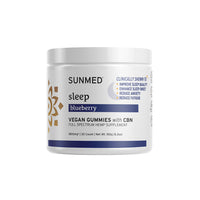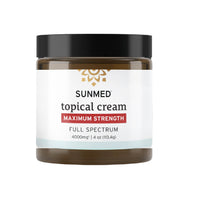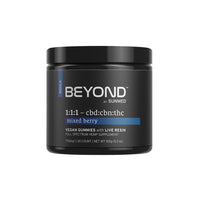Nootropic mushrooms: What are they?

Medically Reviewed by: Dr. Caley Scott, ND
When piecing together your perfect supplement stack, physical health is typically the top priority. Maybe you’re looking for ways to support your energy or stamina, for example.
However, the physical aspect is just one part of the picture of holistic health — our mental well-being and sharpness also matter. Cognition is particularly important if you have a strenuous intellectual job or you’re pursuing creating endeavors for work or play. Why not take your cognitive health just as seriously as your physical health?
That’s where functional mushrooms come into play. Thankfully, mushrooms offer a safe, sustainable way to tap into these cognition-supporting benefits while also delivering positive effects for the body overall.
Let’s explore the world of nootropic mushrooms and make some recommendations based on the latest findings from the frontiers of scientific research. With this info, you can confidently take nootropic mushrooms and perhaps unlock a new level of cognitive ability and mental horsepower.
What are nootropics?
Nootropics are cognitive enhancers that improve mental performance markers like memory, focus, concentration, creativity, and more. The word itself comes from the Greek words “nous” and “trepein” meaning to “bend or turn the mind” — ideally in a positive direction.
While most of us are familiar with prescription smart drugs, the first nootropics were natural dietary supplements associated with Ayurveda and Traditional Chinese Medicine (TCM) practices. The history of nootropics goes back centuries, and we’ve only started to come full circle in our research of these powerful natural compounds.
These dietary supplements are not only easier to find and use, but they also offer a simpler, lower-risk way to step into the world of nootropics. Even supplements you might already use — ginseng or omega-3 fatty acids — have been shown to have nootropic effects on the brain.
What are the general benefits of nootropics?
While it’s difficult to measure the effects of nootropics as precisely as physical health benchmarks, several compounds have been tested and have a proven effect on human mental capacity.
For instance, someone might use ginseng or Ginkgo biloba to increase mental endurance when facing a tough task at work, while L-theanine can bring a sense of calm and focus alongside caffeine. Many nootropic users stack compounds to achieve a synergistic effect and get a range of different benefits that may not be available via a single chemical.
It’s also worth noting that nootropic compounds won’t do the work for you — you still need to put in the effort and accomplish your most important tasks with your natural skills and abilities. However, if you’re in need of an occasional boost of focus or memory, the right compounds can certainly give you an edge when used wisely and in accordance with best practices.
What are functional mushrooms?
Functional mushrooms are specific to members of the fungi biological kingdom. Many of these mushrooms are found naturally in wooded or tropical regions, though mass cultivation is increasingly common around the world, offering better prices and safer standards for users. Many users find that extracts and powders are the most efficient way to get the cognitive-supporting effects of certain mushrooms, while others simply add them as ingredients in daily cooking.
Another advantage of mushrooms is that these substances grant a wider range of benefits beyond memory and cognition — mushrooms also tend to be rich in nutrients, antioxidants, and other healthy compounds, giving them superfood status and offering additional health benefits.
Which mushrooms have cognitive benefits?
With hundreds of mushroom species out there, you’ll likely want to cut to the chase and select the mushrooms that have proven cognitive benefits. After all, experimenting with unknown mushrooms isn’t always the medically advisable route.
Let’s check out some of the most researched functional mushrooms and give you the blueprint to better productivity, memory, and more.
Lion’s Mane mushrooms
The nootropic properties of Lion’s Mane mushroom are mainly attributed to two unique compounds found in the species: hericenones and erinacines. Both compounds have been studied in the context of human brain function and the support of brain cell health.
By taking Lion’s Mane regularly, you may experience support for memory, concentration, and other cognitive functions.
Additionally, Lion’s Mane can help support overall emotional wellness and motivation while easing feelings of mental overwhelm that can get in the way of productivity.
Cordyceps mushrooms
Cordyceps mushrooms have been used in traditional Eastern medicinal practices for hundreds of years, and nootropic effects are just some of the many benefits studied over time.
While cordyceps are typically known for boosting physical energy and stamina, their relation to mental cognition and abilities can’t be overlooked. Mental abilities are rightfully correlated with higher energy levels overall, and to be productive, you need to feel your best on a mental and physical level simultaneously.
Most notably, cordyceps has been studied for its abilities to ease feelings of mental tiredness and support clarity of thinking — two key aspects to optimal brain health and function. At the same time, cordyceps has been shown to support circulation and heart health, meaning you’re getting a much-needed boost of oxygenated, nutrient-rich blood to the brain when performing hard mental tasks.
These findings on cordyceps show that functional mushrooms work on a broader level to offer cognitive benefits, covering many of the body’s systems at once to offer a holistic health boost.
Reishi mushrooms
Reishi mushrooms are another prominent fungi found in Eastern medicinal teachings, emphasizing stress management and adaptogenic effects. Adaptogens work on an as-needed basis, bringing balance to stressed areas in the body and allowing its multiple systems to work in harmony.
Specifically, Reishi mushrooms may help support the body’s stress resistance mechanisms, which are vital in the realm of productivity and creative thinking. Difficult intellectual work can be stressful no matter how experienced you are, so an extra level of stress defense can make a difference when tackling a daunting to-do list filled with mentally taxing tasks.
In addition, Reishi mushrooms are known for their antioxidant properties, giving your cells and immune system another advantage in the face of stressors and environmental factors.
Chaga mushrooms
With a high concentration of compounds like polysaccharides and beta-glucans, Chaga is one of the underrated powerhouses of the fungi kingdom. This mushroom grows mainly on the bark of birch trees in cold climates and is most often brewed as a tea or reduced to a powder for streamlined consumption.
On a cellular level, Chaga is a true antioxidant turbocharger, giving your cells the protection they need across the body’s many systems. By easing swelling and tension in muscles, organs, and the brain, it grants indirect cognitive benefits and allows for general balance and comfort conducive to better productivity.
Chaga also has a strong track record for assisting in blood sugar regulation and heart health, bringing balance to the body in ways that can further support cognitive abilities.
What is the best way to consume functional mushrooms?
When stepping into the world of functional mushrooms, your goal is to find a method of consumption that matches your preferences, lifestyle, and keeps you on track with consistency and convenience.
With that in mind, there’s no single best way to consume mushrooms. Instead, we encourage you to try different approaches and see which one works best for you. Here are some proven ways to take functional mushrooms regularly so you can experience the benefits for yourself.
Cooking and snacking with functional mushrooms
For those who enjoy the taste and texture of mushrooms already, cooking with these ingredients is a simple way to boost your intake safely and consistently. Unfortunately, only Lion’s Mane mushrooms are generally used in a culinary context, while Chaga is typically brewed as a tea.
These two mushrooms offer a good starting point for dietary mushroom consumption, but a different approach will likely be necessary for things like Reishi and Cordyceps.
Tinctures, powders, and extracts
For mushrooms that don’t fit in the recipe book, you’ll want to look for concentrated forms like tinctures and extracts that deliver the benefits of the functional fungi we’ve discussed so far.
Thankfully, these products are now widely available for everything from Cordyceps and Lion’s Mane to Chaga, Reishi, and more. Because extracts are typically not measured out in pre-portioned amounts, always be sure to measure the effective serving sizes and take a cautious approach when using individual ingredients like these.
An all-in-one mushroom supplement
For a simple, accessible way to take functional mushrooms, Sunmed’s All-in-One Mushroom Gummies offer the entry point you’ve been looking for. We hand-picked the most effective functional mushrooms and found the ideal amounts for sustainable, efficient daily consumption and the most beneficial effects.
The bottom line
Nootropics are a mysterious yet intriguing aspect of wellness that sparks the interest of many health enthusiasts. Functional mushrooms present a low-risk, high-reward pathway to unlocking cognitive benefits while supporting your broader health goals and overall well-being.
As Sunmed’s product lineup expands and we branch out into new areas of wellness, consider adding mushrooms to your must-have list of supplements with our All-in-One Mushroom Gummies. From nutrients and antioxidants to mental health and more, mushrooms are truly the path forward in holistic health.
Sources:
Nootropics as Cognitive Enhancers: Types, Dosage and Side Effects of Smart Drugs | NIH
Medicinal Mushrooms: Bioactive Compounds, Use, and Clinical Trials | NIH
Fungi as Future Medicine: The Therapeutic Potential of Mushrooms | News Medical Life Sciences
Chaga mushroom: a super-fungus with countless facets and untapped potential | NCBI
Ganoderma lucidum (Lingzhi or Reishi) - Herbal Medicine | NCBI Bookshelf












